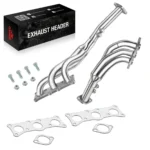There’s no shortage of digital product agencies promising innovation, transformation, and user-centred design. The hard part isn’t finding one—it’s finding the right one. Because once you commit, that agency isn’t just building your product or Digital Product Agency. They’re shaping your future.
If that sounds dramatic, good. It should. The success or failure of your digital product often depends less on the initial idea and more on the people bringing it to life.
So, how do you make a smart choice in a sea of slick portfolios and confident pitches?
Look Beyond the Buzzwords
Every agency claims to be “agile,” “data-driven,” and “user-first.” These terms are fine in theory, but they lose all meaning when they’re copy-pasted into every deck or case study. What matters more is whether an agency can explain how they approach projects—specifically, how they adapt those buzzword-heavy methods to your business context.
Can they talk about trade-offs without defaulting to jargon? Can they show you where they challenged a client’s brief because it wasn’t realistic or user-centric enough? That kind of honesty is more valuable than surface-level alignment with trend-driven language.
Understand Their Approach to Scalability and Long-Term Thinking
A good digital product agency will never just build what you ask for. They’ll build what you need—and more importantly, what will still serve you six months or six years from now.
Scalability isn’t just a technical feature. It’s a mindset baked into the design, development, and testing process. It means thinking about how a product might evolve, break, grow, or pivot, and designing for those scenarios proactively of Digital Product Agency.
One way to assess this is by exploring how they’ve handled growth in past projects. Did they build flexible architecture from the beginning? Did their design system allow for future modules, users, or devices? A reliable agency will be able to walk you through these considerations without needing to bluff.
You’ll find that firms like www.pixelfield.co.uk foreground that balance between execution and longevity. Their focus isn’t just on getting something live—it’s on building products with real staying power.
Evaluate the Depth of Their Discovery Process
The discovery phase might be the least glamorous part of a digital project, but it’s where the future is quietly decided.
This is where agencies dig into user behaviour, business models, technical requirements, and stakeholder expectations. If an agency is skimming over this or rushing to wireframes, it’s a red flag.
A solid discovery process doesn’t guarantee success, but a poor one virtually guarantees problems. And don’t be fooled by overly polished user personas or endless workshops with sticky notes—good discovery is messy, curious, and obsessed with uncovering the right problem to solve.
Ask how they define success at this stage. Ask how they validate assumptions. Ask how they ensure that what’s being designed actually matters to the user.
Looking for more insights? Dive into our latest posts before you leave!
Look for Cultural Compatibility, Not Just Capability
Yes, technical and creative skill matter. But so does the way an agency communicates, collaborates, and handles conflict.
Digital product development isn’t linear. There will be disagreements, surprises, and moments where decisions have to be made fast. If your agency can’t handle feedback without ego, or if they vanish when the roadmap gets bumpy, it doesn’t matter how good their Figma game is.
Look for teams that communicate clearly, document thoroughly, and stay honest even when the news isn’t good. That includes being realistic about timelines, flagging scope creep, and being transparent when trade-offs are needed.
It’s also worth noting how they treat feedback from non-technical stakeholders. If they can’t communicate in plain English—or worse, if they seem to resent having to—it’s a sign they may not handle cross-functional alignment well down the line Digital Product Agency.
Don’t Overrate the Showreel
Portfolios are helpful. They give you a sense of visual polish, platform experience, and technical breadth. But they’re also curated. An agency is unlikely to showcase the project that got cut short, the one with too many pivots, or the startup that never got funding.
That doesn’t mean portfolios are useless, but treat them as a conversation starter, not proof of excellence.
What’s more telling is how an agency talks about their work. Do they speak only in wins, or can they articulate what didn’t work and why? Are they able to reflect on what they’d do differently? That kind of insight is gold, because it shows maturity—not just momentum.
Final Thoughts: Look for Builders, Not Just Talkers
Ultimately, a great digital product agency is part translator, part builder, part critic. They need to understand business goals, speak user language, and challenge assumptions without derailing momentum.
This balance is rare, and not every agency can strike it. But when you find one that can? You’ll know. They’ll ask smarter questions than you expected, spot issues before they arise, and quietly make the complex feel simple.
And they’ll never just give you what you asked for. They’ll give you something better.
Stick around and explore more articles that might catch your interest!







